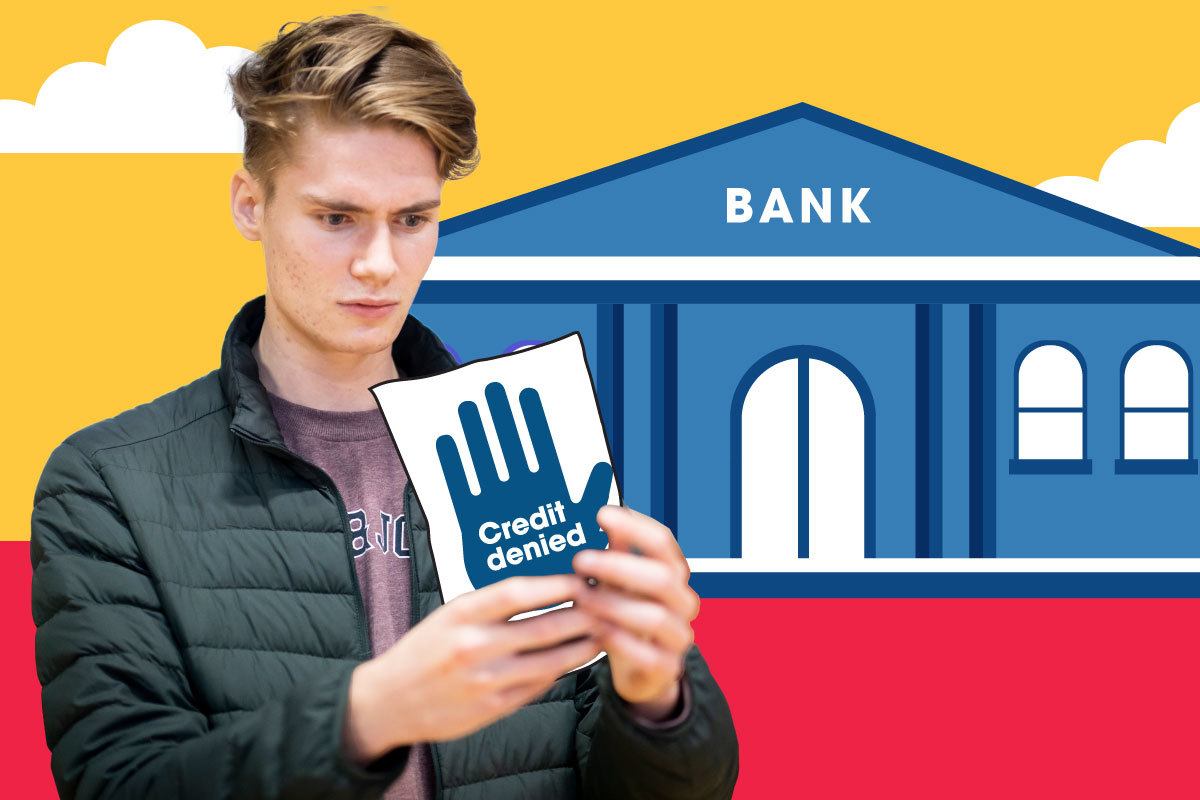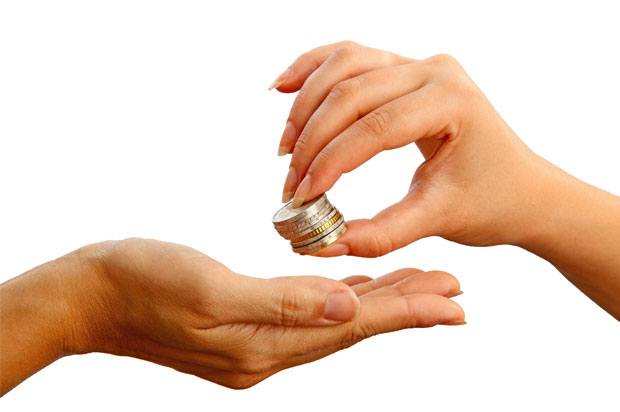What does it mean if I’ve been refused credit?

Have you been refused credit, such as a loan or credit card, by a bank or other lender? Have you ever worried that being refused leaves a negative mark on your credit report?
Before you yell ‘BASTARDS’ at some poor cashier’s face and apply for eighteen payday loans, read this handy guide from the financial experts at Experian to help you understand why this happens, and what you can do about it.
Why have you been refused credit?
Before we go any further, it’s worth noting that making multiple credit applications in a short space of time can lower your credit score and your chances of approval. So, if you have been refused credit, take some time to review the situation before you apply elsewhere.
You have a right to know why your loan or other credit wasn’t approved. If you were refused because they searched your credit history and didn’t like what they saw, they have to tell you as much. You also have the right to know what credit reference agency they used to check you out, and recent legislation allows you to access that report for free. Find out how, here.
Unfortunately, even if your credit report is perfect it doesn’t mean a lender will lend to you. They use their own scoring systems and lenders aren’t just looking for perfect people who can pay credit back on time. They also look at other information, such as from your application form and their existing records, if you’ve been a customer before. Like most businesses, lenders want to maximise their profits, so that’s their main consideration when it comes to choosing who they lend money to.
Experian has a handy interactive tool to help you get to the bottom of a credit refusal. Your first step will usually be to ask the lender to tell you the main reason, because only they know.
Watch our video to find out what to do if you’ve been refused credit:
What if they’ve got it wrong?
This can’t be based on your personal opinion, but if the credit reference agency has used incorrect data in their report, you’re allowed to put them straight. Write to them ASAP, explaining why they’re wrong and providing evidence if you can. They’ll look into it within 28 days, and that part of your credit report will be marked as ‘disputed’ in the meantime. Alternatively, if the incorrect information has been provided by a third party, such as a bank, it may be quicker to contact them directly.
What is credit rating?
Your credit rating is a score based on how you’ve paid off credit in the past. Banks and other lenders use this score when deciding whether or not to give you credit. It might seem unfair (and it kind of is) but young people are likely to have low credit scores simply because they haven’t had the opportunity to prove they can handle credit. If you’ve never had a credit card or taken out a loan – for example – how can the bank judge whether you were good at paying off your debts? Read more about how to boost your credit rating here.
Hopefully this doesn’t sound too much like quantum physics, but one of the most important factors when it comes to credit scores, and one of the easiest things to improve, is your credit utilisation rate. In simple terms, this is the percentage of available credit you’re using.
You can calculate this percentage by dividing the credit card balance appearing on your credit report by the card’s credit limit, and multiplying that figure by 100.
You can reduce your credit card utilisation ratio by decreasing your reported card balances and increasing your available credit. Common ways to do this include using your credit card less, making early payments and increasing your credit limits.
Does a declined loan appear on your credit report?
If you’re worried about how long refused credit stays on file – don’t panic! When a lender accesses your credit report, what is known as a “hard inquiry” is added to your reports. However, the ultimate outcome of that inquiry is not recorded.
How else can I get the money?
If you’re feeling a bit worried, we still have some other useful resources for you, including our discussion boards and group chat forums.
You might appreciate our I need to borrow some money article, which talks you through your safest options.
And, before you rush into anything, it’s worth reading our ‘Can I afford this debt?’ piece too, to make sure you’re borrowing wisely.
Last but not least: Several price-comparison sites now show you your chances of being accepted for credit before you apply, using ‘soft’ credit checks. This can help protect your credit rating while you shop around and, importantly, help you avoid applying for credit you’re unlikely to get!
Next Steps
- The Money Helper offers free, unbiased and independent advice about all financial matters. 0800 138 7777
- Citizens Advice offer free help with housing, money and legal problems. Find your local centre.
- Chat about this subject on our Discussion Boards.
By Holly Turner
Updated on 06-Jun-2021
No featured article













